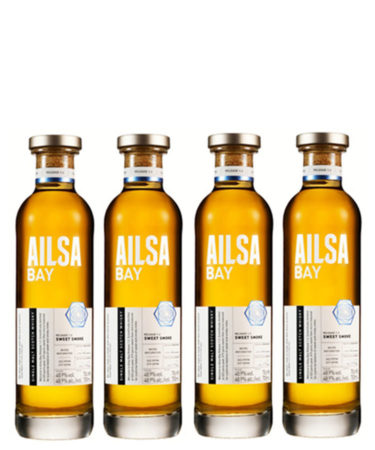In December 2018, a specialist laboratory tested 55 bottles of “rare” Scotch whisky and found 21 of them to be fakes. Had they been real, the bottles would have had a combined worth of $802,000.
Meanwhile, a study published earlier in the year by the European Union’s Intellectual Property Office revealed bottles such as these were costing the U.K. economy nearly £220 million annually (around $290 million). In a bid to tackle this costly, growing issue, one Scotch whisky producer is turning to blockchain technology.
As reported by The Spirits Business, William Grant & Sons just launched a new bottle for its Ailsa Bay brand that utilizes blockchain technology which allows drinkers to track the spirit’s journey from “source to store.”
The distiller teamed up with specialist technology company Arc-Net to introduce QR codes to its bottles’ labels. When scanned, codes present drinkers with a unique visual history of the spirit inside.
The system utilizes blockchain data provided by William Grant & Sons, which tracks things like which cask was used for the spirit, when the cask was filled, and when the whisky was bottled. The blockchain data can be accessed and shared but can’t be changed or altered, making it a handy tool for verifying authenticity.
“Innovation is a key part of our business,” Dominic Parfitt, head of e-commerce at William Grant & Sons, said. “We’re constantly looking to evolve our offering and learn new things in order to push the boundaries within the drinks industry.”
The brand hopes the new technology will set a blueprint for the future of the spirits industry, and Parfitt says he hopes “other brands follow suit.”
(Ailsa Bay’s blockchain whisky retails at $66 per 700ml bottling, and is available exclusively in global duty-free outlets.)
